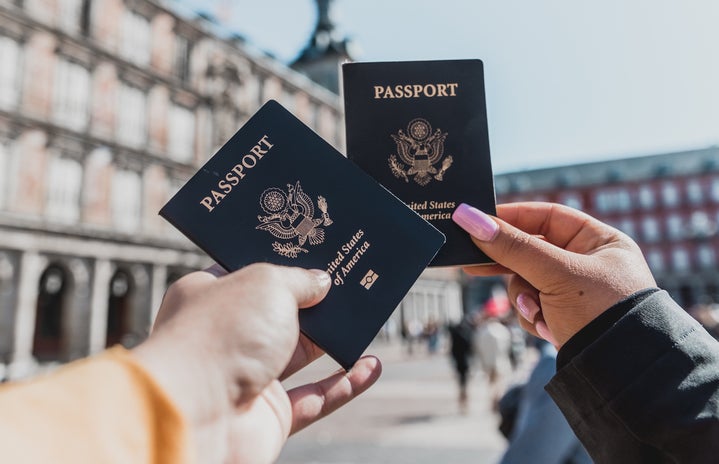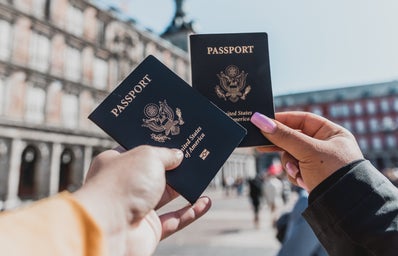For as long as I can remember, I’ve been at war with myself in terms of self-identity. Born in Florida to two Bolivian parents, I grew up speaking English and watching American cartoons, craving sugar-injected American cereals. I also, however, traveled frequently to Bolivia, ate Bolivian cuisine and learned Bolivian dances. These two worlds often complicated how I identified myself. In the U.S., I didn’t feel I was “American enough.” My family simply didn’t participate in certain festivities like the Fourth of July. Even if we did celebrate, say, Thanksgiving, our meals certainly weren’t up the original Colonies’ standards. In Bolivia, I was regarded as the American cousin, the one who needed help learning Spanish and who was too picky of an eater for what seemed to be other Bolivian children’s favorites.
So when the question “Where are you from?” came up, it was often met by me shrugging my shoulders and ignoring it. Obviously, I was born one place and was ethnically from another, but I didn’t connect with either. I evaded it for as long as I could. That is, until, I moved to Bolivia with my mom during sixth grade.
My entire world changed as I found myself struggling to adapt to speaking Spanish full-time and going to school where customs were just plain different. Eventually, I found Bolivians were very friendly and unafraid of speaking and befriending new people. Rather, they welcomed interaction with the unfamiliar. I soon saw myself finding my place in Bolivia and its wonderful culture, picking up on the indigenous beliefs very present in its society and the superstition that any disrespect to the Pachamama, or Mother Earth, would result in misfortune. I acquired a taste for all foods Bolivian, and the plates of Chairo I rejected not long ago became my lunchtime craving.
At last, I thought to myself, I could choose: I was Bolivian.
The keywords in the last sentence: I thought. I became increasingly aware that in everyone else’s eyes, this was not the case. If I didn’t understand a particular word, it was cause for an “Oh, it’s too Bolivian, of course you wouldn’t know it.” In my school’s English class, I was the target. “Hey gringa, can you help me with this question?” I became more frustrated than ever before because I had finally made up my mind regarding my identity, but the outside world denied that decision for me. Here I was, trying to be the best Bolivian I could be, only to be dismissed as a foreigner.
At age 17, as most teen girls are stereotyped to be, I was completely unpredictable, rebellious, and in all honesty, nuts. I decided to dye half of my hair a burgundy shade, leaving the other half its natural black. I took it as a simple choice of aesthetic purpose.
Then, my physics professor brought it to my attention. “Nice! Your hair reminds me of your duality,” he said as he smiled at me on his way out. Duality. The word struck me. What was probably an innocent comment on my professor’s behalf plunged me into an existential reflection. I began to come to terms with the fact that it wasn’t just my hair, but myself as a person that was dual. I am a juxtaposition of two colliding worlds and two opposing cultures that had no other reason to come together if it weren’t for my existence. After all, isn’t that what makes us so wonderfully unique? That within each and every one of us, there are worlds that come together, and we are the vehicle for that union. It wasn’t until I was 17 that I realized that I don’t have to choose. I am a Bolivian-American and I am blessed with the best of both worlds, as well as the perception of the worst of both worlds.
It was then that I came to understand that the idea of the USA being a diverse melting pot is visionary, not fact. The United States, unfortunately, battles to this day with issues of race, discrimination and oppression. Admittedly, it has come a long way in contrast with third-world countries, but its journey to being a leading example continues. And it’s the realization that all of us, whether we be of complete American origin, immigrants, second-generation immigrants, mixed race, etc, contribute to our own helping of diversity and individuality, and that is what will define America as a true “land of the free.” In connecting with my Bolivian roots, I developed a better sense of how we can all progress as Americans in accepting all of our cultures and bringing them together into this melting pot.



